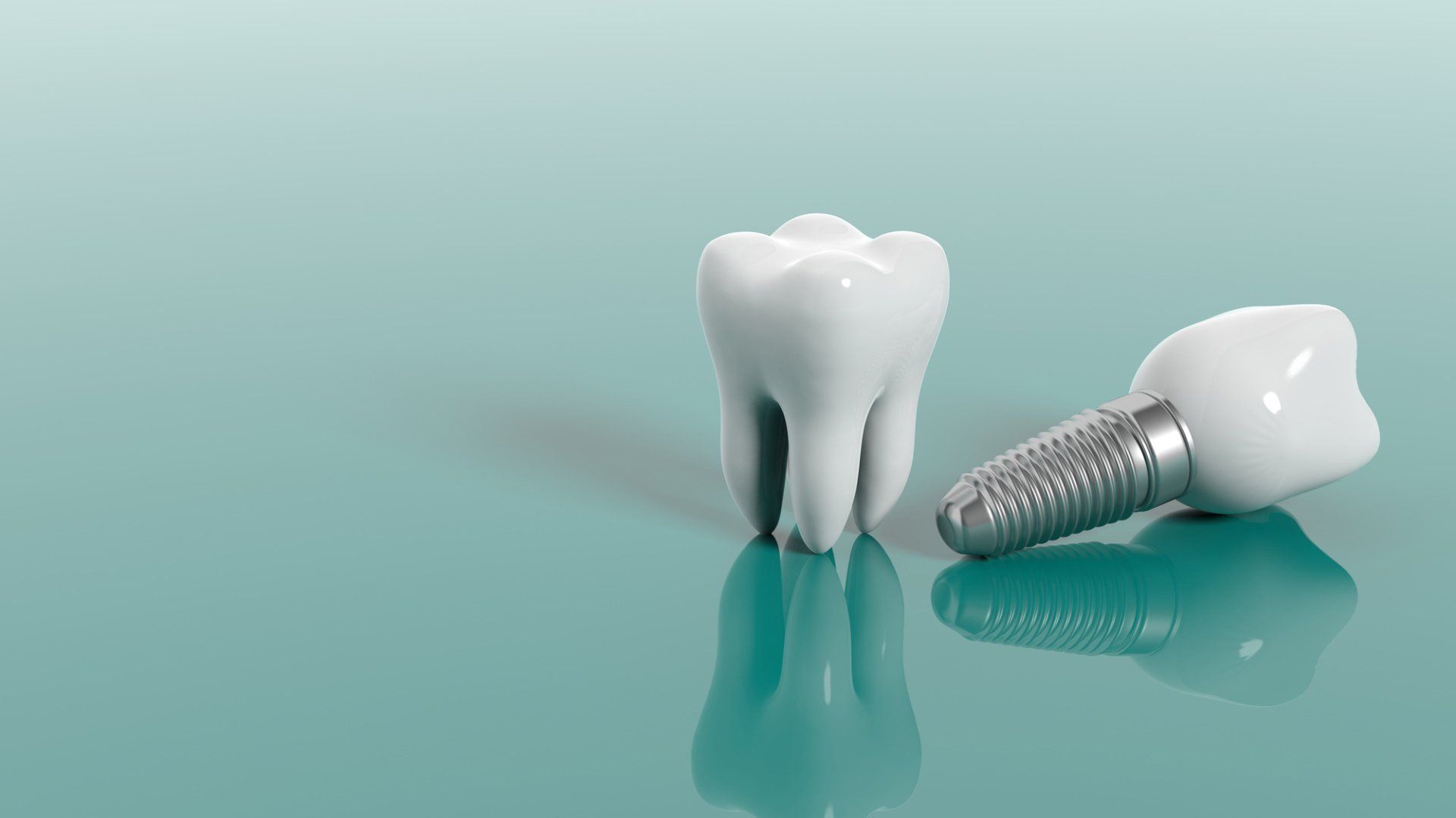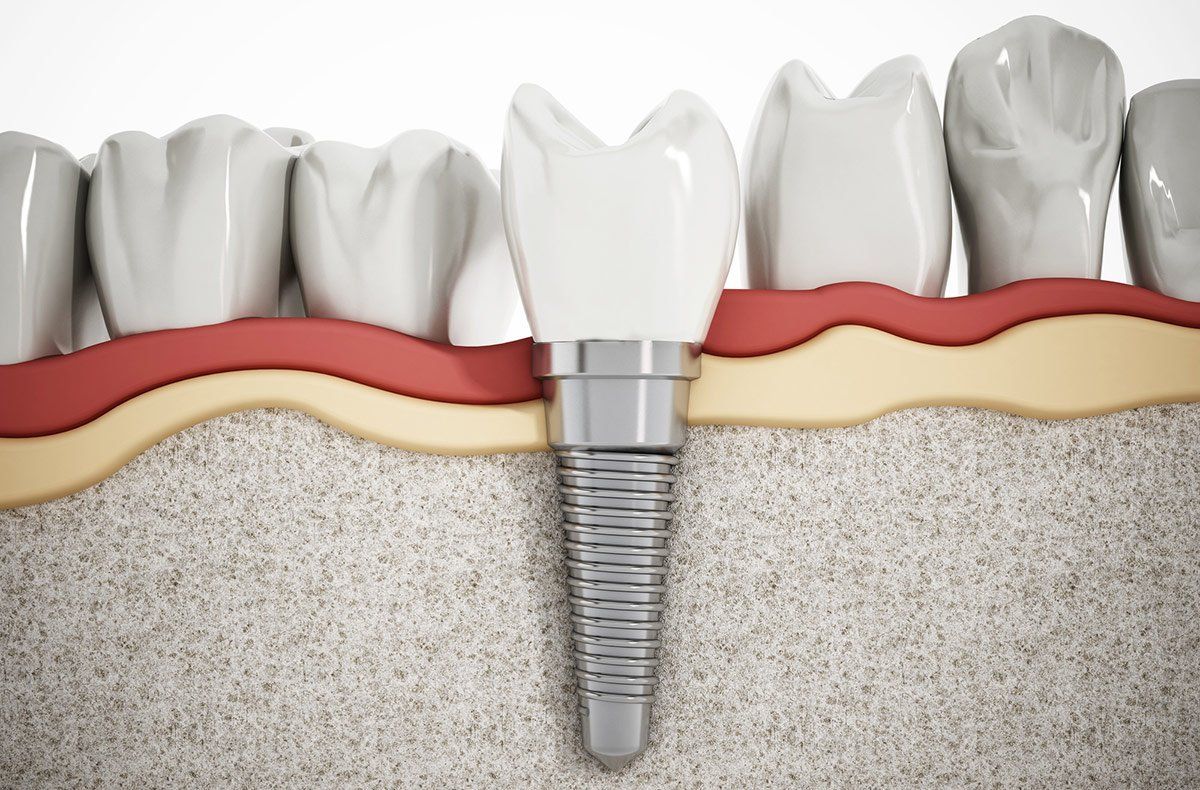SE HABLA ESPAÑOL I
Dental Implants: Benefits, Cost, Procedure, and After Care
Changing the face of dentistry over the last several decades, discover the advantages, cost, process, and after care of dental implants.
Thirty-six million Americans have no teeth. And, in the next 20 years, we will see that number increase.
There are many reasons for losing teeth: age, oral cancer, poor oral hygiene, mouth injuries, and many others. For some people, missing teeth can be embarrassing, and they're eager to maintain their smile.
Dental implants can provide the solution you're looking for. Read on to discover more about how dental implants work.
What Are Dental Implants?
Dental implants are different from dentures. Dentures are removable, but implants operate like your natural teeth.
Dental implants adhere to the bone of your jaw using a titanium screw. This screw is attached to a crown, that's shaped like your natural tooth and acts as the replacement tooth. Dental implants likely last between 10-15 years.
Are There Any Advantages to Getting Dental Implants?
While dental implants seem strange at first, there are several advantages you can expect:
- They stay in place for activities like talking, eating, and drinking, unlike dentures, which can come loose. Implants become permanent.
- Having dentures means removing them
, cleaning them, and sometimes dealing with a sticky residue that keeps them in place. Dental implants offer a more convenient and less messy option.
- With dental implants, you radiate more confidence, which, in turn, could improve your self-esteem. You're no longer worried about the looks of your teeth or if they will loosen during eating and talking.
- Dental implants are durable and last longer if they're well maintained, sometimes lasting decades or a lifetime.
- Your oral health can improve, as well. The implant does not impact surrounding teeth, and the space left between each implant means you can brush and floss with ease.
- People with dental implants will agree that they are much more comfortable and easier to manage than dentures.
- With dentures slipping around in your mouth, it might be challenging to talk, and people may have trouble understanding you. Having dental implants allows you to speak like usual, with clear and concise speech.
Who Is A Good Candidate For Dental Implants?
While dental implants are an excellent addition for some people, not everyone will benefit from them. To be eligible for implants, there are a few stipulations.
Because the implant is attached to the jawbone, the jawbone must be healthy and in good condition. This is the base of the implant. If the jawbone and the gum are healthy, there should be no problems.
You also have to maintain proper oral hygiene and regularly scheduled dentist visits. For those who have oral diseases and a weak jawbone or gums, dental implants may not be appropriate or even possible. Having an overall healthy mouth is critical, yet speaking with your dentist is encouraged to find the best course of treatment.Types of Dental Implants
There are two basic kinds of dental implants, endosteal and subperiosteal.
- Endosteal implants are titanium screws and are directly put in the jawbone. After the implants are in place, there's usually another procedure to attach the abutment and the crown.
- Subperiosteal implants are under the gums but not inserted into the jawbone like the endosteal implants. They may go on or above the bone instead. Subperiosteal implants may be possible for those whose gums or jawbones are not healthy enough to support endosteal implants.
Paying For Dental Implants
Getting dental implants sounds terrific, but the cost is always a question potential patients have. Keep in mind that getting dental implants is somewhat of an invasive procedure, but lasts many years to come, and provides you with an easier way of life.
There are many factors to consider when deciding on dental implants and their cost, such as the number of implants needed, materials the dentist will use, the dentist's expertise, the types of implants you get, bone grafts, x-rays, and so forth. So, there is no set number for dental implants.
In general, one implant alone could cost you $1,000-$4,000, which include the abutment, crown, and any other additional procedures. In some cases, if people want more than one implant, the cost could rise to several thousands of dollars.
Some insurance companies may pay a portion of the cost of dental implants, but they do not cover the entire cost. The best way to get an estimate is to contact your insurance company.
Dental Implants Procedure
Getting dental implant s is more complicated than a routine visit and can take many weeks to complete. Once you've had your consultation with your dentist and they've approved you for dental implants you can expect the procedure to follow this outline.
The dentist has consulted with a team of professionals and created a plan precisely to fit your needs. At your scheduled appointment, the screw is implanted into your jawbone (or above, depending on the implant) and the gum is allowed to grow around it for 6-12 weeks.
The abutment - the piece that holds the crown in place - is then connected to the implant and the crown. The dentist creates the crown by taking molds of your teeth and fashioning one from the impression. You will continue check-ups to ensure that everything is going well, and the implants are staying in place.
Treatment And Care
After the implant procedure is complete, it's essential to maintain a healthy oral-care routine. This would include brushing, flossing, eating healthy foods, and regular check-ups with your dentists.
Dental Implants: Takeaway
Dental implants are worth the time and money invested compared to dentures, and due to their convenience and longevity. If you're considering dental implants and looking for a dentist in Ashburn, VA, contact our office today to get all your questions answered!
Work Hours:
Mon-Tues 8:00 am - 5:00 pm
Wed 8:00 am - 5:00 pm
(Every 2nd and 4th Wednesday of the month close at 12:00 pm)
Thru- 8:00 am - 5:00 pm
Fri- 7:30 am-2:30 pm
(Every 2nd and 4th Friday of the month )
Saturday 8:00 am-2:00pm
(Every 4th Saturday of the month)
All Rights Reserved | Ashburn Family Dentistry & Implant Center (703) 936-6412
Website Designed and Maintained by Xpress, INC













